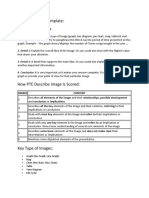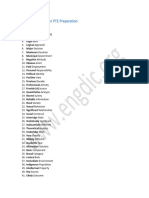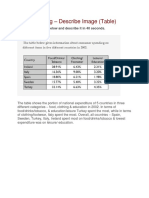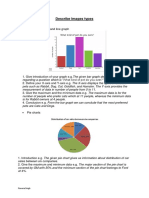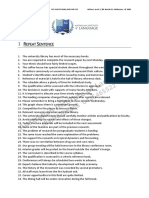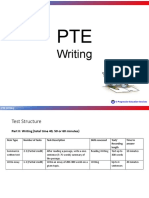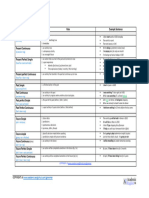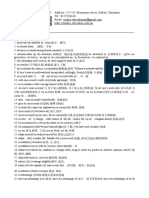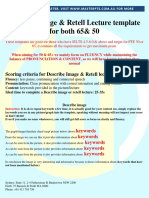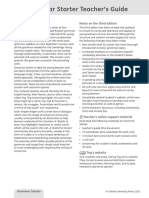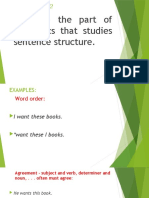0% found this document useful (0 votes)
2K views9 pagesEnglish Grammar For PTE
This document provides a summary of essential English grammar structures for the PTE exam. [1] It outlines simple sentence structures using subject + verb + object and lists the tenses needed including present, future, past, present continuous and present perfect. [2] It also explains the three main types of conditional sentences. [3] The document concludes by listing some common English phrases and the typical order of words in a sentence like adjectives preceding nouns.
Uploaded by
Kiko BaOCopyright
© © All Rights Reserved
We take content rights seriously. If you suspect this is your content, claim it here.
Available Formats
Download as PDF, TXT or read online on Scribd
0% found this document useful (0 votes)
2K views9 pagesEnglish Grammar For PTE
This document provides a summary of essential English grammar structures for the PTE exam. [1] It outlines simple sentence structures using subject + verb + object and lists the tenses needed including present, future, past, present continuous and present perfect. [2] It also explains the three main types of conditional sentences. [3] The document concludes by listing some common English phrases and the typical order of words in a sentence like adjectives preceding nouns.
Uploaded by
Kiko BaOCopyright
© © All Rights Reserved
We take content rights seriously. If you suspect this is your content, claim it here.
Available Formats
Download as PDF, TXT or read online on Scribd
/ 9







